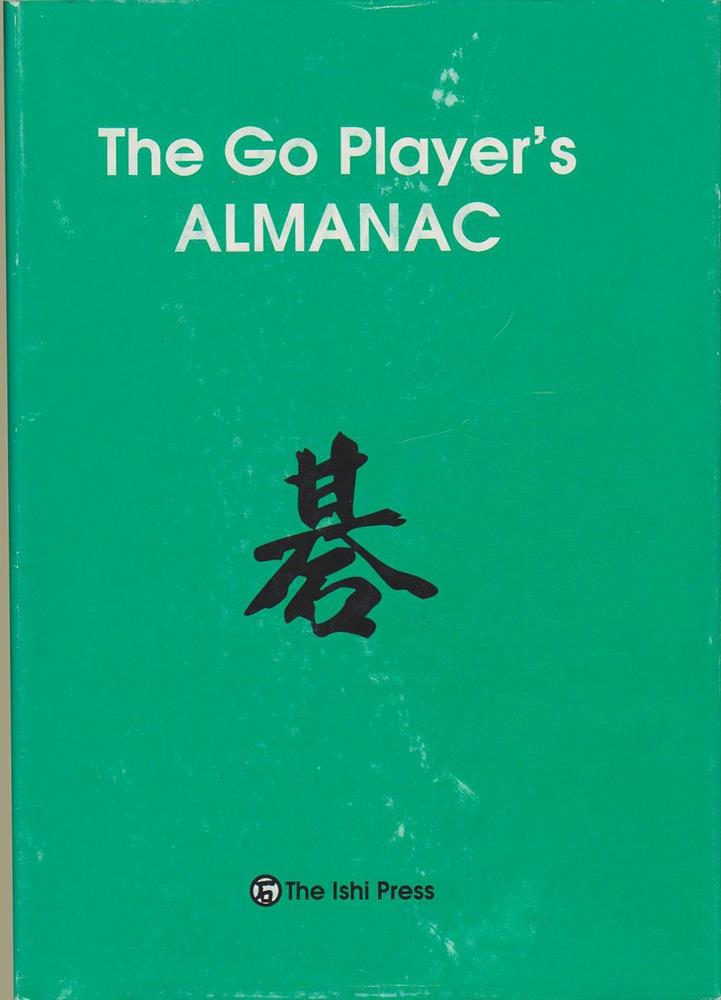My comedy hero Steve Martin once quipped of the French language, “they have a completely different word for everything!” It’s one of the fun things that is, I’d say, “GO adjacent,” which is learning all of the words they have for GO concepts. In English we often use Japanese words for things, like tesuji and ko. Though some other languages are sometimes used, like Korean when people call the game baduk.
For example, aji is a good one. Nagahara tells us that , “aji literally means taste; taste in the sense of food which may taste good or bad” (5). That’s why I always use food analogies when explaining aji to kyus. “Mmmmm, that tastes good, like chocolate ice cream” or, “ewwwww, you don’t want to eat that junky carrot cake, blech!” Of course, there’s more to it than yummy versus yucky! Nagahara goes on, “One of the characteristics of taste is that it lingers," like sour milk that’s been in the fridge too long. “That milk is starting to smell. The longer it lingers, the worse it’s gonna smell. You don’t wanna drink that.” That’s aji, but there are so many more words than you realize.
It’s almost like they have a different word for everything! When I lived in Japan in the 90’s, I came across Richard Bozulich’s The Go Player’s Almanac (Ishii Press, 1992) which includes a chapter with an extensive glossary. And when I say extensive, I mean extensive.

Just to illustrate, I just flipped to a random page in the middle and chose a word at random, and the random word that I randomly chose is: kento (page 188). It is explained as “a guess.” Think of how many times you’ve guessed in a game but didn’t know that there was a word for it. I’d almost say that my entire game is nothing but kento—except that I found an even better word to describe my game: akushu (page 176). Akushu means “a bad move.” If only there was a word for “a guess that is also a bad move.” Jersuji?
With many thanks to Mr. Bozulich for all the joy I have gotten out of this dictionary over the years, here’s a couple more fun words I bet you never heard of. I wanted to mention one that we use English for, i.e., what is the Japanese word for an “empty triangle”? Here it says, aki-sankaku. Another word that fits right into the kento-akushu-jersuji framework is nurui, a “slack” move. Why does Japanese have so many words for bad play!! They only just met me—I must not have been the first.
Oki-go means “handicap go.” By the way, ever had a quadruple ko? The Japanese word for this situation is shi-ko. The iron pillar is tetchu, a bamboo joint is takefu. And tsukuri-go is “a game that is counted (i.e. the loser doesn’t resign). In practice, this term refers to a close game.” You get the drift, a different word for everything.
But, my single favorite word that I learned from this dictionary is shudan:
Literally, ‘hand conversation’. A metaphorical
name for go: even without a common language,
two persons can have a conversation by playing
a game of go.
Oh, what a beautiful sentiment! That our te (aka, hand(s)) are conversating, dancing even in my opinion. My hand seems to be saying, “kento kento kento.” After which I reply, "kento-akushu-jersuji.” And then my hands are forced to admit, “nurui.”
A few GO words not found in the dictionary:
A.I.— our overlord masters
Chicken-boo— an unnecessary safety move inside your own territory that costs you points and street cred
Jersuji-- a guess that also does nothing and is comically slack to the point that you will get mocked, by your opponent, other plays, and the voice inside your head
Johnny Appleseed— dropping stones around the board during the opening just to see what sprouts later
Non-suji— a play that looks brilliant but does absolutely nothing
Rick move— a probing move by a beginner that is usually invading and asks for a response so usually doesn’t cost a point to play but otherwise does nothing, a specialty of the 24-kyu
What-am-i-doing-suji— when you wake up form a daydream or hallucination only to realize that your last 30 moves don’t work at all
*If anyone has any favorite words from Bozulich’s dictionary or any other “new” words for mine, be sure to leave a comment.